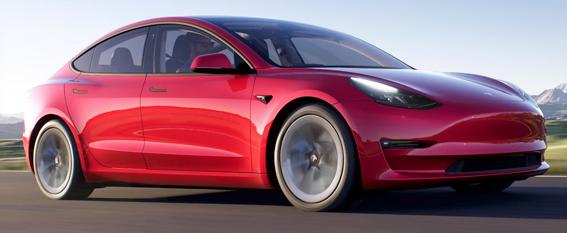
7 minute read
Maleny Players Next Production!
from Maleny Grapevine Community News and Maleny District Sports Club Results for the period to 02.06.2023
We’re excited to be bringing you 'Dancing with Lughnasa' by Brian Friel- and Directed by Andrew Wallace. Dancing at Lughnasa is a 1990 play set in a cottage in County Donegal in 1936. It’s a household of five unmarried sisters who would all like to be married. The youngest has an illegitimate son, the eldest tries to keep preserve family respectability. But now the father of the child re-appears, full of seductive charm, while an elder brother has just returned after decades working as a priest in Africa and is strangely changed.
In the back hills there are still lingering pagan rituals, Lugh (pronounced ‘Loo’) being the ancient Celtic god of the harvest. The rhythms of family life play out against broader social tensions and economic hardship. You will enjoy meeting these fundamentally good-hearted and resilient people.
At Friday evening performances you are invited to come along at 6pm to purchase a bowl of Irish stew to enjoy whilst being entertained with music on the veranda at the Playhouse.
Please purchase your tickets early to avoid disappointment.
We look forward to seeing you at the Playhouse.
Do you have a mould problem
Best Benchtop Water Filters

Clean, safe drinking water is one of our most basic needs but that is not always what you get with everyday tap water here in Australia. Yes our water is treated and deemed to be safe for human consumption but what are all the additives doing to our health?
The Waters Co Bio bench top filter removes toxins up to 99%, adds minerals, and better adjusts the pH level of regular tap water.
This filter cleans water of dirt, bacteria, rust, sediment, high-level copper, lead, and Mercury. It also clears water of THMs, which is a cancer-causing pollutant.
https://healthyhabitats.com.au/?aff=4




Electric Vehicles are becoming more common on Queensland roads, even in Maleny they are more common that a couple of years ago with a number of Tesla fully electric vehicles seen daily around town.
There are many benefits of electric vehicles (EVs) over conventional petrol or diesel cars. The main benefits are said to be that a “Battery Electric Vehicle” has fewer moving parts than a conventional petrol/diesel car. Servicing is relatively easy, less frequent and overall cheaper than a petrol/diesel vehicle. An electric vehicle has zero exhaust emissions, but still creates a degree of greenhouse gas emissions when it is charged from the electricity grid. These can be reduced if charged from a home solar system.
Electric vehicles (EVs) have gained significant traction in recent years, promising a greener, more sustainable future for transportation. With the mounting concerns over climate change and the depletion of fossil fuels, EVs have emerged as a viable solution to reduce carbon emissions and create a cleaner environment. In this article we attempt to explores the future of electric vehicles, analysing the advancements, challenges, and potential implications for the automotive industry and the world.
Advancements in Electric Vehicle Technology

The future of electric vehicles lies in the continuous advancements in technology, especially in battery technology. The development of highperformance batteries, particularly lithium-ion batteries, has been instrumental in enhancing the driving range and charging efficiency of EVs. However, research is underway to create even more efficient and cost-effective battery technologies, such as solid-state batteries and lithium-sulphur batteries, which could significantly
Self-driving EVs can optimise energy consumption, improve traffic flow, and enhance safety on the roads. With the integration of artificial intelligence and machine learning, EVs of the future will become more intelligent, capable of learning driver habits and optimising performance for maximum efficiency.
Infrastructure Development:
One of the key challenges hindering the widespread adoption of electric vehicles is the lack of a robust charging infrastructure. However, significant efforts are being made globally to address this issue. Governments, businesses, and organisations are investing heavily in building charging networks, including high-power fastcharging stations and wireless charging technologies.
Furthermore, innovative solutions such as vehicleto-grid (V2G) technology are being explored. V2G enables EVs to discharge excess stored energy back into the grid during peak demand, effectively transforming EVs into mobile power sources. This bidirectional energy flow can create a more resilient and sustainable energy system.

Environmental and Health Benefits:
The future of electric vehicles promises a substantial reduction in greenhouse gas emissions and air pollution. By replacing internal combustion engine vehicles with EVs, we can significantly mitigate the harmful effects of transportation-related emissions. Electric vehicles
Continued next Page produce zero tailpipe emissions, leading to improved air quality and reduced respiratory illnesses.
Additionally, the shift to EVs reduces dependence on fossil fuels, which are finite resources associated with geopolitical conflicts and price volatility. By embracing electric mobility, nations can enhance energy independence and create a more stable and sustainable energy ecosystem.
Economic Opportunities
The transition to electric vehicles offers significant economic opportunities. The EV industry is expected to generate millions of jobs worldwide, ranging from manufacturing and assembly to research and development of new technologies. This industry growth will also spur innovation and attract investments in renewable energy sources and battery production.
Moreover, electric vehicles can contribute to energy grid stability. As more EVs are connected to the grid, they can act as decentralised energy storage units, helping to balance fluctuations in renewable energy generation and improve grid resilience.
Challenges and Potential Solutions
Despite the promising future, several challenges must be addressed for electric vehicles to reach their full potential. These include the high initial costs, limited driving range, longer charging times, and the environmental impact of battery production and disposal.
To overcome these challenges, governments can implement supportive policies, such as financial incentives, tax breaks, and subsidies, to make EVs more affordable for consumers. The Queensland Government offers some incentives to encourage purchases of electric only vehicles and those can be found at the web site: https://www.qrida.qld.gov.au/program/queenslandzero-emission-vehicle-rebate-scheme
Investments in research and development can accelerate breakthroughs in battery technology, leading to cost reductions and increased energy density. Collaborations between automakers, battery manufacturers, and charging infrastructure providers can streamline the development and deployment of electric vehicles.
Conclusion
The future of electric vehicles is poised for remarkable growth and transformation. Advancements in technology, infrastructure development, environmental benefits, economic opportunities, and concerted efforts from stakeholders will be the driving forces behind the widespread adoption of electric vehicles.
As we shift towards a sustainable revolution in transportation, electric vehicles hold the key to a greener, cleaner, and more energy-efficient future. By embracing this transformative shift, we can mitigate climate change, improve air quality, enhance energy independence, and create a better world for generations to come.
Not everything is good for electric vehicles. The expected life of an EV's battery pack is between 10 and 12 years and at this stage their replacement is expensive.
Right from the start there is an amount of greenhouse gasses and emissions produced in the making of the vehicle and even more from the making of the battery. Is this enough to off set the total emissions over the life of the vehicle?
Charging from the grid will also produce harmful emissions, unless it is charged exclusively from solar power direct. There is a long way to go in developing electric vehicles for efficiency..
More information can be found here: https://www.esafety.gov.au/newsroom/whats-on/safer-internet-day-2023

Take care wit re-chargeable batteries!
Lithium-ion batteries are becoming more important to the day to day living conditions of all Australians.
Unfortunately, there have been more than 450 fires in Australia have been linked to the batteries over the past 18 months. Over-charging, over-heating, physical damage or even defects in the manufacturing process, could all cause a lithium-ion battery to ignite. Never charge electric scooters or bikes indoors.
You should not use batteries showing signs of swelling, overheating or damage. Lithium-ion batteries can reignite hours, days or even weeks later after being extinguished.
Home owners needed to safely manage lithium-ion batteries. It is important to always follow the manufacturer instructions and guidelines in respect to the handling of lithium-ion batteries.
Man charged with murder of local Chris Gwin
A 68-year-old Maroochydore man, Paul Coughlan has been charged with the murder of Conondale man Chris Gwin between 10am and 1pm on Thursday May 18th, 2023.

A major search of the Caloundra Landfill + Resource Recovery Centre by police and SES volunteers has yielded a piece of clothing that police believe may have been worn during an alleged murder. Couglan has been remanded in custody until August 18th, 2023.
Maleny SES Volunteer group Be Prepared for severe weather events
What to do if you need assistance
For life threatening emergencies, call Triple Zero (000).For storm and flood related property damage.
Call the State Emergency Service: 132 500. To keep up to date with Emergency Warnings
Tune into warnings and updates from your local ABC radio and TV stations
Important Phone numbers for assistance during or after a major emergency service.
When disaster strikes you need to follow the advice of authorities on staying put or evacuating and follow your emergency plan.
To find out where to find assistance during or after a major emergency service.
https://www.sunshinecoast.qld.gov.au/Livingand-Community/Community-Safety/Disasters/ emergencies

Maleny Visitor Information Centre
The Maleny Visitor Information Centre is a not for profit, long-standing, independent community service, run by volunteers. The Centre is a ticket selling agency for Maleny Film Society movie screenings along with a range of quality souvenirs and postcards, with a distinctively Maleny flavour along with information about places and events around the area.
The Centre is situated at 2/23 Maple Street, Maleny. It is open 7 days a week between 9.30am-4.00pm. Closed only on Good Friday and Christmas Day.
If you have lost something on your visit to Maleny check with the centre as often items are handed in there. Phone: 07 5499 9033
To find out more about the Maleny Visitors Information Centre and talk to the volunteers or visit the web site: https://malenyinfocentre.edublogs.org/ https://issuu.com/Maleny-Grapevine-Community-News

Maleny Community Groups & When they meet!
Community Groups that form the back bone of the Maleny Community
Maleny Rotary Club
Meeting. Times
1st and 3rd Wednesdays.
6-30pm for 7pm
Maleny Hotel, Bunya St. Maleny
Email: secretary.maleny@rotary9600.org president.maleny@rotary9600.org
Maleny Probus Club
Meeting. Times
Maleny Uniting Church, Landsborough Road, Maleny
Meet 10 am on the 4th Wednesday of each month.
Feb to November 1300 856 859
Queensland Country Women's Association - Maleny Branch
Meetings at The Verandah Room
23 Maple Street, Maleny
8:00 am - 11:30 am.
4th Monday of Month.
Email: qcwa.maleny@gmail.com
The Zonta Club of Blackall Range
Meetings at Various between Montville and Maleny. Dinner meeting 3rd Tuesday of month 6pm.
Email: membership@zontablackrange.org.au president@zontablackallrange.org.au
Apex Club of Maleny
Meeting. Times
MALENY HOTEL/MALENY BOWL'S CLUB
1ST & 3RD MONDAYS, 7.00PM. Email maleny@apex.org.au.
Postal PO BOX 39. MALENY, QLD 4552 0487770653
Maleny Senior Citizens
Meetings at
The Verandah Room 23 Maple Street, Maleny
8:00 am - 11:30 am. 4th Monday of Month. Activities include card games, meetings and regular bus trips
Email: margarry1@bigpond.com
0409 266 507
The LIONS CLUB OF MALENYBLACKALL RANGE Inc.
Meetings at Maleny Uniting Church Hall
On the 2nd Tuesday of each month at 6.30pm
Monthly Dinner Meeting held at The Orangery, 10 Mountain View Rd, at 6.30pm on 4th Tuesday of month
Email: maleny-blackall-range@lionsq3.org.au
Maleny Commerce
Meetings at Monthly breakfast networking meetings.
2nd Tuesday of the month. Venues to be advised.
Email: info@malenycommerce.org.au https://issuu.com/Maleny-Grapevine-Community-News







